Marriage News Blog
Top law enforcement officials are increasingly saying marriage laws that discriminate against gay and lesbian Americans are unconstitutional and are refusing to defend them in court.
It all started in California when then Attorney General Jerry Brown refused to defend Prop. 8 in federal Court. His successor, Kamala Harris, continued the StateŌĆÖs stance in AFERŌĆÖs case, which was heard by the U.S. Supreme Court one year ago this week and resulted in marriage equality being returned to the nationŌĆÖs┬Āmost populous states.
In the past year, attorneys general from Oregon to Kentucky have followed suit. HereŌĆÖs a recap of attorneys general who have joined the side of marriage equality since Jerry Brown and Kamala Harris first took their principled stance:
United States
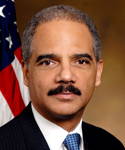 United States Attorney General Eric Holder announced in 2011 that the federal government would no longer defend the so-called Defense of Marriage Act in court. This position was extended to marriage equality in general when the federal government joined AFERŌĆÖs case against Prop. 8 when it was before the U.S. Supreme Court in the spring of 2013.
United States Attorney General Eric Holder announced in 2011 that the federal government would no longer defend the so-called Defense of Marriage Act in court. This position was extended to marriage equality in general when the federal government joined AFERŌĆÖs case against Prop. 8 when it was before the U.S. Supreme Court in the spring of 2013.
Just two weeks ago, Attorney General Holder said that his state counterparts do not have to defend marriage bans if they think they are unconstitutional.
California
 Jerry Brown, then Attorney General at the time, declined to defend CaliforniaŌĆÖs marriage ban in federal court. In the case brought by AFER, he filed with the Court that:
Jerry Brown, then Attorney General at the time, declined to defend CaliforniaŌĆÖs marriage ban in federal court. In the case brought by AFER, he filed with the Court that:
“Proposition 8 must be invalidated because the amendment process cannot be used to extinguish fundamental constitutional rights without compelling justification.”
 The stance was supported by then-Governor Arnold Schwarzenegger and later by current Attorney General Kamala Harris. The official ballot proponents of Prop. 8 defended the initiative and appealed to higher courts. After the Supreme Court ruled they did not have standing, the 2010 Perry decision went into effect, and gay and lesbian couples were able to get married.
The stance was supported by then-Governor Arnold Schwarzenegger and later by current Attorney General Kamala Harris. The official ballot proponents of Prop. 8 defended the initiative and appealed to higher courts. After the Supreme Court ruled they did not have standing, the 2010 Perry decision went into effect, and gay and lesbian couples were able to get married.
Virginia
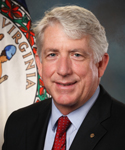 Less than two weeks after he took office, Attorney General Mark Herring reversed VirginiaŌĆÖs position in the Bostic case, AFERŌĆÖs federal court challenge.
Less than two weeks after he took office, Attorney General Mark Herring reversed VirginiaŌĆÖs position in the Bostic case, AFERŌĆÖs federal court challenge.
ŌĆ£As attorney general I cannot and will not defend laws that violate VirginiansŌĆÖ rights. ThatŌĆÖs what I have pledged over and over to do, is to put the law and put Virginians first. ŌĆ” ItŌĆÖs about what the law requires here, and we have concluded, I have concluded, that the law here is unconstitutional, and I think the Supreme Court ŌĆ” would find the law unconstitutional,ŌĆØ he said.
The Federal District Court ruled on February 13 that the stateŌĆÖs ban is unconstitutional. The case is being defended in the U.S. Court of Appeals for the Fourth Circuit by two county clerks and their representation.
Nevada
 Following a Ninth Circuit Court of Appeals ruling that gay and lesbian individuals are entitled to heightened scrutiny in discrimination cases, Attorney General Catherine Cortez Masto reversed the stateŌĆÖs position. A spokesperson said on February 10.
Following a Ninth Circuit Court of Appeals ruling that gay and lesbian individuals are entitled to heightened scrutiny in discrimination cases, Attorney General Catherine Cortez Masto reversed the stateŌĆÖs position. A spokesperson said on February 10.
ŌĆ£After thorough analysis and review, the arguments grounded upon equal protection and due process are no longer sustainable.ŌĆØ
The position is supported by Governor Brian Sandoval, a Republican. The District Court ruling in Sevcik v. Sandoval,┬Āwhich upheld the state ban, is being appealed by attorneys from Lambda Legal. Defendant-intervenor Coalition for the Protection of Marriage will continue to defend the ban.
Illinois
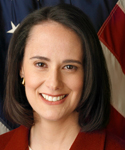 When a lawsuit was filed in Illinois in 2012 challenging the stateŌĆÖs marriage, the very next day Attorney General Lisa Madigan said she would support them. In a 2013 editorial, she said why the ban is indefensible:
When a lawsuit was filed in Illinois in 2012 challenging the stateŌĆÖs marriage, the very next day Attorney General Lisa Madigan said she would support them. In a 2013 editorial, she said why the ban is indefensible:
ŌĆ£A ban on same-sex marriage violates the state Constitution’s equal protection clause. The law does not allow the state or federal government to create a separate class of marriage based on a person’s sexual orientation. There is no other way to describe this than to call it discrimination.ŌĆØ
Marriage equality legislation will take effect in the state in June, but a federal court ruled that Cook County could begin issuing marriage licenses on February 21. More counties have since followed suit.
Pennsylvania
 When her stateŌĆÖs ban on marriage for gay and lesbian couples was challenged, Pennsylvania Attorney General Kathleen Kane did not mince words:
When her stateŌĆÖs ban on marriage for gay and lesbian couples was challenged, Pennsylvania Attorney General Kathleen Kane did not mince words:
“I cannot ethically defend the constitutionality of Pennsylvania’s version of DOMA as I believe it to be wholly unconstitutional.ŌĆØ
There are a number of cases currently in Pennsylvania, including Whitewood v. Wolf. A federal court trial will begin June 9.
Oregon
 Oregon Attorney General Ellen Rosenblum said her stateŌĆÖs ban on marriage is blatant discrimination in a brief filed with the federal court on February 20, 2014:
Oregon Attorney General Ellen Rosenblum said her stateŌĆÖs ban on marriage is blatant discrimination in a brief filed with the federal court on February 20, 2014:
ŌĆ£ŌĆ”the ban cannot withstand a federal constitutional challenge under any standard of review.ŌĆØ
The State filed an amended brief with the federal district court in February. The Court has not yet indicated if it will hold a hearing, full trial, or just issue a decision in the case.
New Mexico
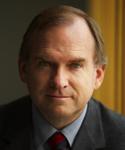 New Mexico laws do not explicitly grant or deny gay and lesbian couples the freedom to marry. In 2011, Attorney General Gary King issued an opinion saying that out of state marriages would be recognized. When state lawsuits starting piling up seeking the freedom to marry for gay and lesbian couples, King filed in support:
New Mexico laws do not explicitly grant or deny gay and lesbian couples the freedom to marry. In 2011, Attorney General Gary King issued an opinion saying that out of state marriages would be recognized. When state lawsuits starting piling up seeking the freedom to marry for gay and lesbian couples, King filed in support:
“New Mexico’s guarantee of equal protection to its citizens demands that same-sex couples be permitted to enjoy the benefits of marriage in the same way and to the same extent as other New Mexico citizens.”
In December 2013, the State Supreme Court ruled unanimously in favor of marriage equality and gay and lesbian couples were able to get married immediately across the state.
Kentucky
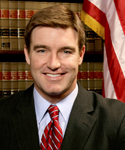
ŌĆ£From a constitutional perspective, Judge Heyburn got it right, and in light of other recent federal decisions, these laws will not likely survive upon appeal. We cannot waste the resources of the Office of the Attorney General pursuing a case we are unlikely to win,ŌĆØ said Attorney General Jack Conway at a press conference on March 4.
The Federal District Court ruled in February that Kentucky must recognize the marriages of gay and lesbian couples who are married out of state. The decision was stayed pending appeal. Gov. Steve Beshear said shortly after ConwayŌĆÖs announcement that he would appoint outside counsel to defend the law.
The Court has not yet reached a decision on the broader issue of whether the state must allow gay and lesbian couples the freedom to marry.
Additional States
Attorneys General Jim Hook in Mississippi, Roy Cooper in North Carolina, and Chris Koster in Missouri have said that while they support marriage equality, they will continue to defend their statesŌĆÖ marriage bans in court.
